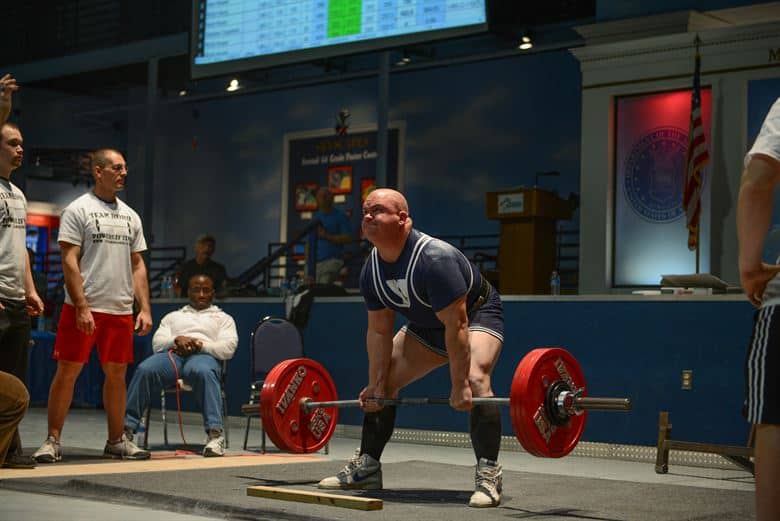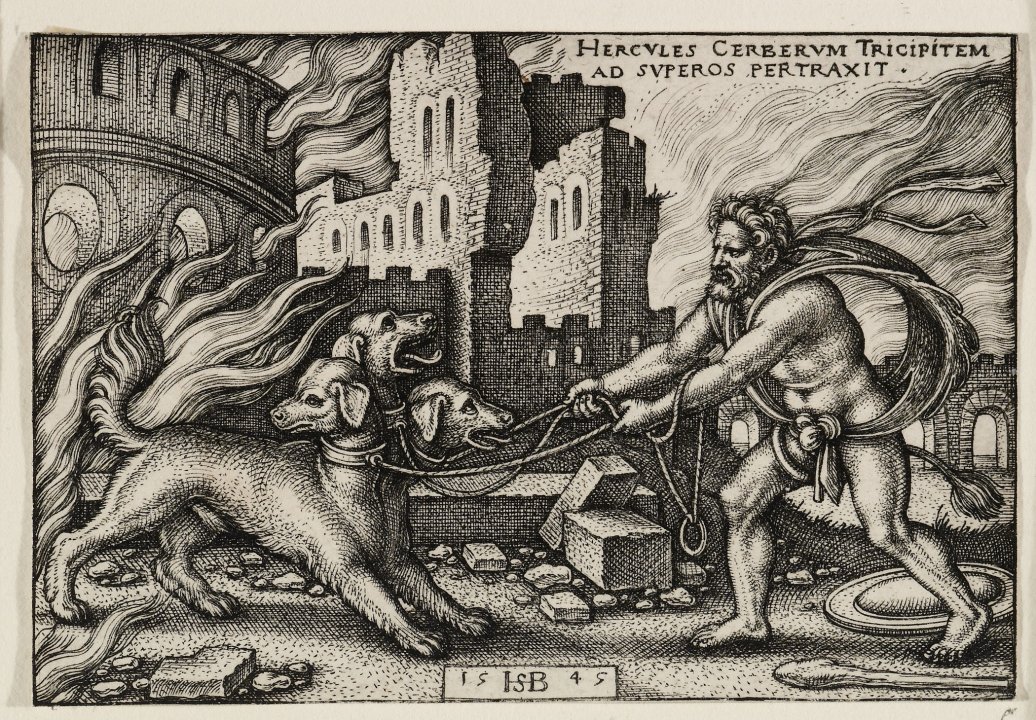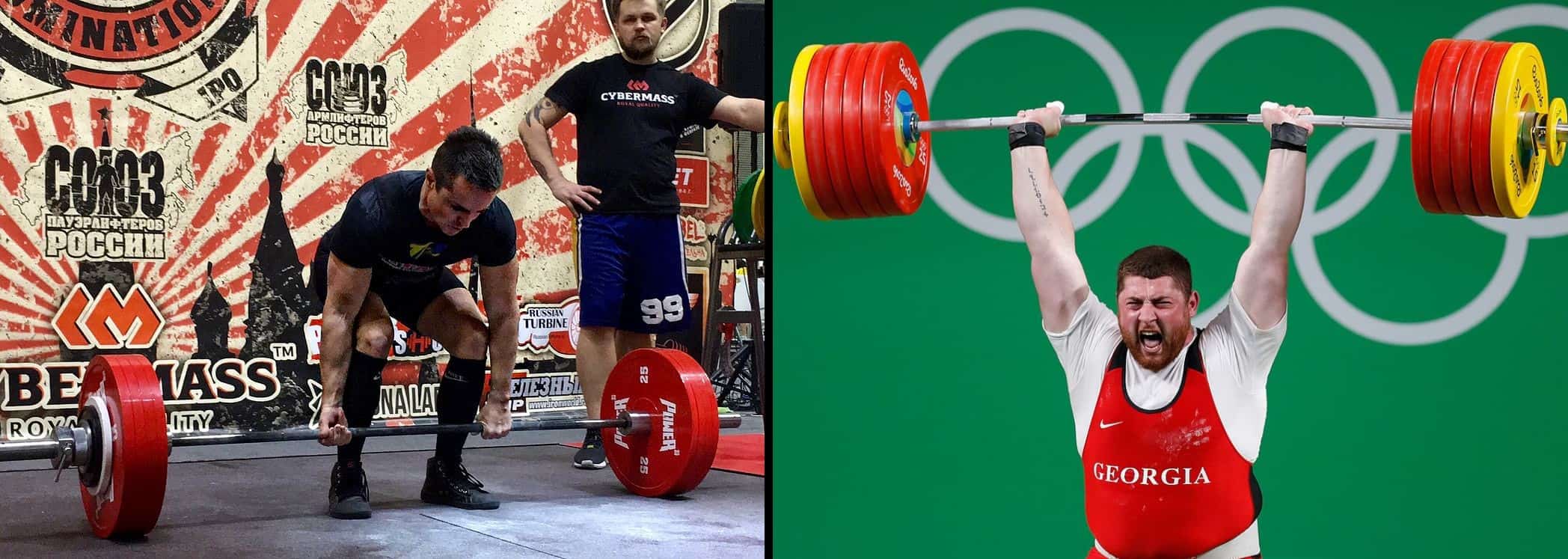The sport of powerlifting is one where competitors can choose to compete in a variety of weight, age, and equipment classes, and through a variety of federations. Some smaller federations are part of a greater family, and others exist on their own. Any federation can sanction a meet, set its own rules, and declare records. But for many, powerlifting is about more than just the sport, and you don’t have to compete to be a powerlifter.
At least, that is what I personally believe. Everyone is entitled to their own opinion, and I have seen people defend the idea that to be a powerlifter, you must compete, or plan to compete soon. Those without the means to do so can only be powerlifters if they’re ultimately working towards that goal. Personally, I think the sport of powerlifting is so simple that as long as you follow the rules and train to achieve the highest total you can within the parameters of powerlifting – even if it’s a gym total – you’re a powerlifter.
What is a Powerlifter?
If you want to be a powerlifter, you must train in order to complete the big three lifts as per the rules of the sport, even if you don’t compete. The rules of powerlifting are simple: the squat, bench press and deadlift are performed in that order before a set of judges for a meet total, which is the end goal of any meet. Those with the highest total relative to their weight within their weight class wins Gold.
Without judges, you can still perform gym
totals. These don’t necessarily even need to occur within the same training session.
A gym total is the total amount of weight lifted when combining your three personal
big PRs (personal records) in the powerlifting movements. Gym totals are almost
always going to be higher than meet totals among experienced lifters because it’s
a much more controlled environment, you go at your own pace, and personal
records for each lift can be broken individually, so you have the time and
mental energy to focus on breaking your record in a single lift at a time.
That, and the fact that the lifts aren’t technically verifiable (no judges, weights could be fake or inexact, hard to tell if a lift was good from certain video angles) makes many more experienced competitive powerlifters scoff at people who measure themselves with gym lifts. Others, however, don’t care and acknowledge that not every lifter wants to compete, and many simply can’t due to financial constraints and other obstacles.
That being said, it’s generally understood that if you want to be a powerlifter, you need to complete lifts within the rules of the sport. That means a PR for a competition bench press won’t count if it isn’t paused properly, otherwise, it’s simply a touch-and-go PR. Similarly, squats need to hit depth and deadlifts need to be properly locked out and lowered, without hitching.
Powerlifting is a Sport of Three Lifts
This specific issue is actually relatively
divisive. Some people argue that even if you only focus on a single lift, you
are a powerlifter. Someone who only trains the deadlift or the bench press but
can perform the other two lifts serviceably (rarely if ever training them) is
not a powerlifter, in my opinion. It’s a sport of three lifts.
Someone who only really likes bench
pressing isn’t a powerlifter. There are plenty of powerlifters who generally
like bench pressing more than the other two lifts, but they’re still really
strong at the other two lifts. To me, part of the sport is giving it your all
and trying to attain the highest total you can, with or without a competition
to attend. That means training in each of the three major movements.
Powerlifting is About the Biggest Total
You are not a powerlifter if you just train
to get a bigger three-rep max. It’s safer, sure, but that’s not the point of a
strength sport like powerlifting, where the rules of any meet require lifters
to perform a single repetition as best they can, with three attempts for each
lift. You don’t need to compete to be a powerlifter – but you do need to be
training to try and hit the biggest total you can, within your own limitations
(including any reservations you might have regarding safety and health).
This is probably one reason why many people
feel that you need to compete or plan to compete to be a real powerlifter. If the
defining aspect of the sport is the all-out max lift, why bother potentially
getting hurt if you aren’t going to do it for recognition and a chance at a medal
or new record?
In my opinion, that is a very narrow view
of the sport. Yes, competing is certainly incredibly rewarding, not only because
of the recognition but because of the great energy felt at many meets, and the
opportunity to interact and socialize with other lifters who have been
preparing for months or years just as you have been. But ultimately, as a
strength sport, and one where the goal is to overcome old limitations and reach
new heights, powerlifting is a very rewarding experience all of its own, and I’m
sure many (not necessarily most) lifters would agree that they’d be just as
stoked to hit a crazy lifetime PR in their basement as they would be if they
hit on a stage.
Powerlifting is About Bringing Your Best
onto the Platform
I don’t think you need to compete to be a
powerlifter, and while I feel the urge to compete as a powerlifter, I respect
that many do not. I respect them as powerlifters all the same. And I respect all
lifters, even if they specialize in completely different disciplines, or set completely
different rules and goals for themselves. It’s awesome to watch someone smash a
PR in one of the big three lifts, but it’s just as cool to see people do odd
lifts, compete in completely different sports like strongman or the Highland
games, or just focus entirely on breaking rep PRs on a 100kg bench press.
You may or may not be a powerlifter. But
don’t worry too much about labels like that. We’re all ultimately trying to
better ourselves and keep aiming a little higher than we previously might have,
in the hopes of reaching all new heights.
Image credits to ANG Public Affairs.





